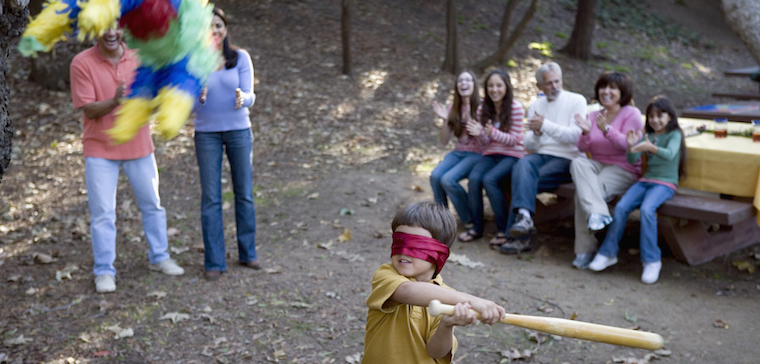“Practice makes perfect,” goes the old adage. But a better adage might be, “Practice with pauses makes perfect,” says performance psychologist Dr. Noa Kageyama, a faculty member of the Juilliard School of Music. Kageyama, who specializes in teaching performing artists how to utilize sport psychology principles to perform better under pressure, points to research that reveals the important role played by “pausing” between practice attempts when trying to master a new skill.
Don't use the piñata method when trying to master a new skill
Most of us attempt to learn a new skill with a method that reminds Kageyama of how children try to break open a piñata at a party.
Quote:
“First off, there are tons of complete misses, glancing blows, and weak hits. Then the older siblings get into the act, but to no avail. And eventually, the host parents, with growing impatience and frustration, starts whack, whack, whacking at the thing in a frenzy until finally the candy begins to trickle out. Anyone working on a new skill-a dart player trying to improve their throw, or a tennis player working on a serve toss-goes through a similar process when trying to improve their skills as rapidly as possible. We get a result that's off-target, so we stop, reset, and quickly try it again. But dang, we mess it up again, so with no pause to reflect on what just happened, we simply dive back in, and try it again, and again, and again, (whack, whack, whack!) until finally we get something that's more satisfactory and move on.
How 'pausing' between attempts beats the piñata-whacking way
A 2005 study into the success rates of various approaches to learning a new tricky motor skill found that those who paused 5, 10, 15, 20 or 40 seconds all mastered the skill quicker than those who had no pause or only a one-second pause.
Follow-up tests 24 and 36 hours later revealed a continuation of the gap in learning between the 5+ second pausing group and the one-second (or no pause) group continued. The researchers surmised that a 1-second break wasn't enough time to process the information gleaned from each previous attempt and get it into long-term memory
Learning takes place between attempts at doing something new-not while you are attempting it
While he's directing his advice to musicians, Dr. Kageyama's suggestions can work for people who are in the midst of trying to master any new skill-including the skills necessary to run a business.
Quote:
Don't just piñata through practice. Take your time. Pause. Ponder and actively reflect on what just happened. Plan your next move. And make the next attempt even closer to the mark.
(via: CreativityPost.com)

No comments:
Post a Comment